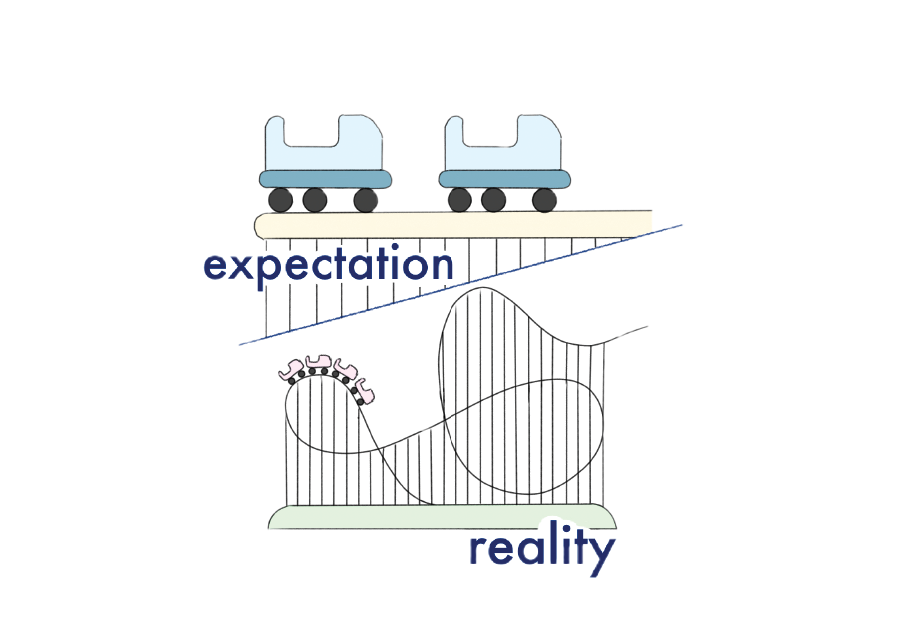It’s “cool” to support Bernie Sanders, a 74-year-old socialist. He’s loud, opinionated, idealistic, simplistic, impractical and all-together unconventional. But his policies are polarizing the public against what we know as the Democratic Party, the same way Donald Trump’s policies do for the Republican Party. With the ascendancy of Sanders and Trump, we may be witnessing the death of the moderate.
The surprisingly successful candidacies of Sanders and Trump have dramatically transformed the primary races. Sanders, who has pulled Clinton further left–although not enough for millennials, originally gained momentum by speaking about hot-button issues to young people. So, in order to keep up, Clinton jumped on the bandwagon. Because of this, Clinton has become less attractive to moderate Democrats and Independents– even if they have no other choice. For the Republicans, any candidate that has moderate stance has not been favorable. Trump’s appeal to Populism oddly parallels the Theodore Roosevelt – William Howard Taft split during the 1912 Election, in which the Republican Party completely lost the vote to Democrat Woodrow Wilson and effectively disappeared for several cycles.
The gradual movement towards extremism now appears inherent to winning the nomination, as Trump pulls further ahead and Sanders’ surprising competitiveness demonstrate the considerable threats that their candidacy poses to traditional political values, like moderation. Most of our society works in groups toward a common goal, in the workplace, school and at home. We dislike the polarization of our elected leaders’ militant positions and inability to compromise–one reason that has lead to a rise in the supposed “anger” of the voters. So why are we considering electing the two most radical sides of each party, who would never be able to work toward a common goal? Moderation and compromise are essential to preventing conflict from arising. However, politicians like Sanders and Trump, who live on the outskirts of each of their parties, would rather focus on minute details than the actual issues that can be effectively addressed. Moderation, along with reason, has been discarded in favor of a political rhetoric spoken in sound bites, as seen when Sanders and Trump failed to outline their policies in depth when interviewed.
Sanders is a symptom of a movement within the millennials, who want free college, political correctness and equality for all. His forward momentum should be effectively halted by Democratic moderates, although his agenda considerably parallels the extremism of the Tea Party. These radical movements want to do the same thing: burn the establishment down. Neither support bilateral compromise and would rather rebuild our government with their own radical vision.
Voters claim to be angry, but the manifestation of this anger in radical movements usually mellows itself as the younger generation grows older. Movement toward moderation is a tried and true method to weather the storm. However, some of the radical ideas proposed by each side of the aisle pose long-term consequences, like alienation of America from the rest of the world or an extreme transformation and collapse of America’s economy. Additionally, Trump’s racist vitriol might be seen as “candor” by his supporters, but this rhetoric is particularly poisonous to the Republican Party in general, as Trump clearly has a glass ceiling on how many supporters he can have.
Trump has extremely low support in urban centers and among people with higher education. Many find it surprising that people are supporting Trump because we can see that he hardly says anything of true substance. As a nation, according to a 2014 Bureau of Labor Statistics survey, 65.9 percent of Americans attended college. Paralleled with an NBC News/Esquire poll indicating the 51 percent of Americans consider themselves moderate, no radical candidate could gain the votes to win a presidential election. However, through Trump’s terrifying victories, it seems like enough primary voters have elected a radical to become the nominee.
It is with great sadness that the sun has set on Reagan’s Republican Party, but I worry more for the 2020 or 2024 elections than 2016. With the effects of radical ideology, the Republican Party is fractured and the Democrats are divided. What will our candidates look like in the future, particularly in critical House and Senate races? This is a large-scale political revolution that will redefine both parties. However, in these critical times, we must find a path towards moderation if we want to keep our society functioning for all.







